Mondays
Beyond Scarlett O’Hara: A Vivien Leigh Retrospective
Programmed by Julia Reinitz
Essay by Julia Reinitz
Ranked by the AFI as the 16th greatest female movie star of all time, the British actress Vivien Leigh was born Vivian Mary Hartley on November 5th, 1913, in Darjeeling, India. Taking her stage name from her first husband’s middle name and a more feminized spelling of her given name, Vivien Leigh made her film debut in 1935 as an extra in the film Things are Looking Up. Her first major role came two years later, in Fire Over England, where she met her future second husband, Laurence Olivier. Splitting her time between stage and screen (and reprising some roles in both formats), Leigh became a filmic icon while playing major roles in a mere fifteen films over an almost thirty-year-long career as an actress that was cut tragically short by her death from tuberculosis in 1967 at the age of fifty-three.
Leigh’s life had a sometimes-uncanny tendency to echo her turns on the screen. Falling in love with Laurence Olivier essentially at first sight on the set of Fire Over England, she began a passionate affair with the fellow actor that anticipated her role as Lord Nelson’s mistress Lady Hamilton in That Hamilton Woman, also opposite Olivier. Divorcing her first husband and abandoning her daughter Suzanne, Leigh married Olivier in 1940. The two became perhaps the original iconic Hollywood couple, often attempting and failing to end up in roles opposite each other. Such a situation occurred during the filming of Waterloo Bridge, included in this series.
Like the heroine she portrays in Sidewalks of London, Leigh spent several years in relative obscurity working for Alexander Korda’s London Films before getting her big break. That big break was the role that would go on to become her most iconic, the southern belle Scarlett O’Hara in Gone With the Wind. Beating out hundreds of other actresses for the part, including established Hollywood names such as Bette Davis and Katharine Hepburn, Scarlett was the role that launched Leigh to international stardom and her first Academy Award for Best Actress.
Her second award for Best Actress came for another role as a southern belle, this time the fading Blanche DuBois in Elia Kazan’s adaptation of A Streetcar Named Desire. Leigh’s portrayal of Blanche on screen was a reprise of her work as Blanche on the stage, in a production directed by then-husband Olivier. Her art again echoing her life, these roles came as Leigh struggled with her own bipolar disorder. She reportedly found identifying with someone so near madness to be extremely taxing given her own mental state, and Leigh herself believed that the role of Blanche helped “tip” her into mental illness.
Yet from elegant spy to American divorcée, from street urchin to southern belle, Vivien Leigh brought an enviable fire and intensity to all of her screen performances. She was beautiful, versatile, and charming, drawing upon her often-turbulent life experiences to light up her roles on screen. Her eyes alone could express more emotion than most people’s entire faces, going from coy to canny to aggressive and back again. Her versatility, allure, and pure talent make Vivien Leigh is one of the silver screen’s true legends.
2015-03-30 @ 7:00 PM
Fire Over England

(William K. Howard, 1937) · A period drama set during the reign of Elizabeth I, this was Leigh’s first movie with Laurence Olivier. Despite both being married to other people, the couple fell in love on set, beginning an affair that would end with both Leigh and Olivier divorcing their partners and marrying each other. The beginnings of their real-life passion play out on screen as Olivier earns the respect of Queen Elizabeth and the love of her courtesan, played by Leigh.
runtime: 92 min format: DCP
2015-04-06 @ 7:00 PM
Dark Journey
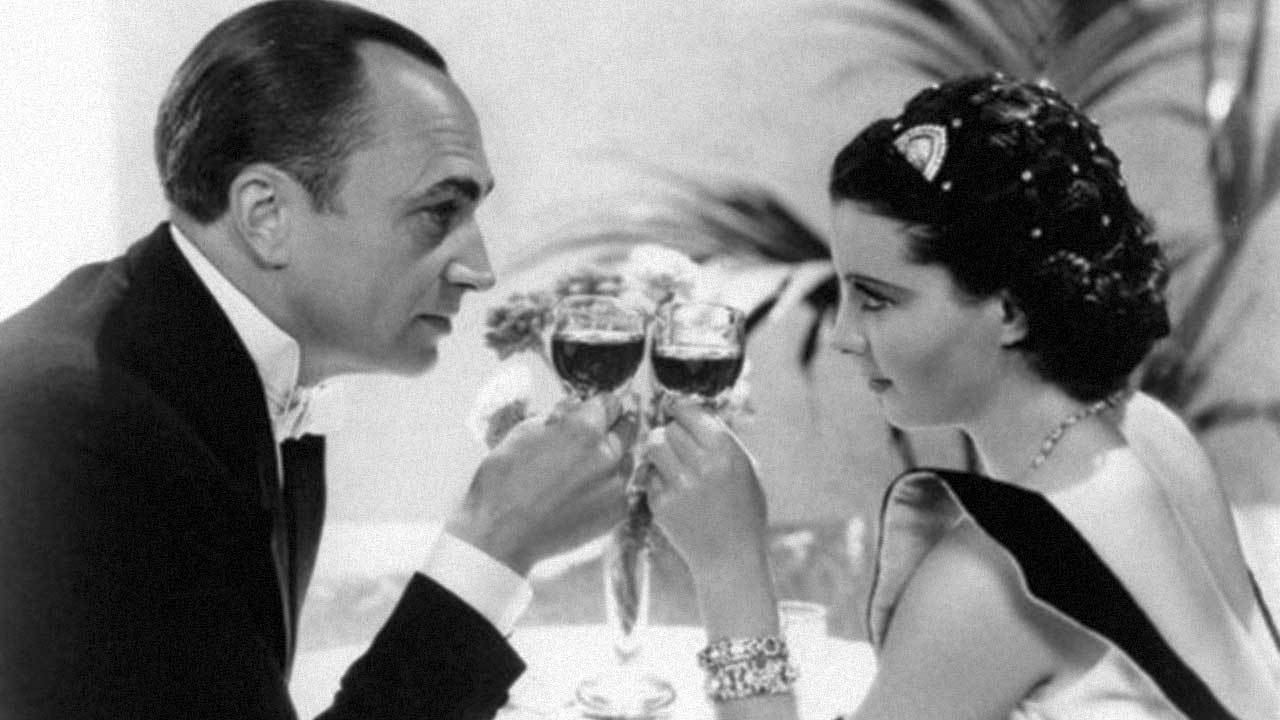
(Victor Saville, 1937) · Leigh’s first starring role sees her playing Madeleine, an elegant French double agent posing as a Swedish dress shop owner during World War I. Co-star Conrad Veidt plays a German spy who falls in love with Madeleine, even though each is attempting to outwit the other. Though not the first choice for the leading role (Saville wanted Miriam Hopkins), Leigh was recommended by producer Alexander Korda on the strength of her performance in Fire Over England.
runtime: 77 min format: DCP
2015-04-13 @ 7:00 PM
Sidewalks of London
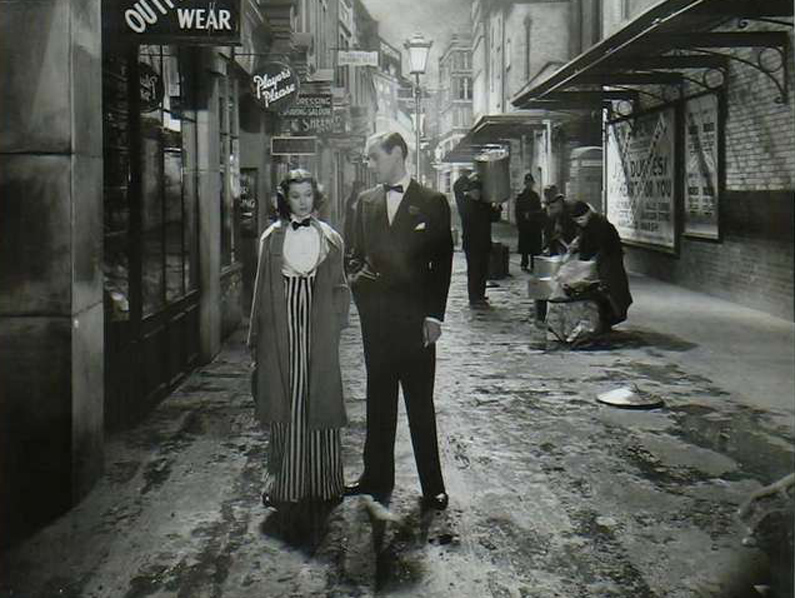
(Tim Whelan, 1938) · Starting in the London streets and ending on the stage, Sidewalks Of London shows a woman’s rise from rags to riches, with lots of dance numbers along the way. The still relatively unknown Leigh would make her own transition to greater prominence a year later with her role in Gone With The Wind. Leigh brings the same confident fire to Libby, a pickpocket with a Cockney accent, that she would bring the following year to the role of Scarlett O’Hara.
runtime: 85 min format: DCP
2015-04-20 @ 7:00 PM
Storm in a Teacup
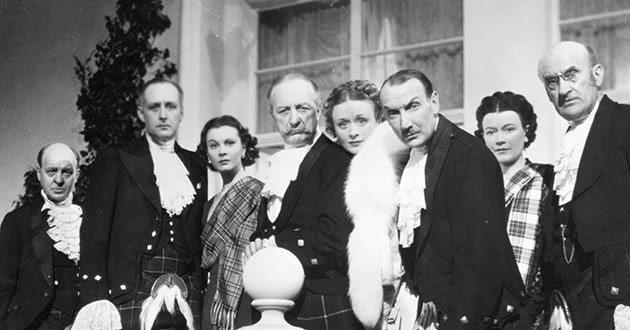
(Ian Dalrymple & Victor Saville, 1937) · In this screwball comedy, new reporter Frank Burdon (played by Rex Harrison in his first starring role) writes a negative story about local politician William Gow (Cecil Parker), resulting in a conflict between the two that quickly intensifies. At the same time, Burdon falls in love with Gow’s daughter Victoria, played by Leigh. Harrison apparently developed a crush on co-star Leigh as well, but, aware of her feelings for Olivier, the two became good friends instead.
runtime: 87 min format: DCP
2015-04-27 @ 7:00 PM
Gone with the Wind
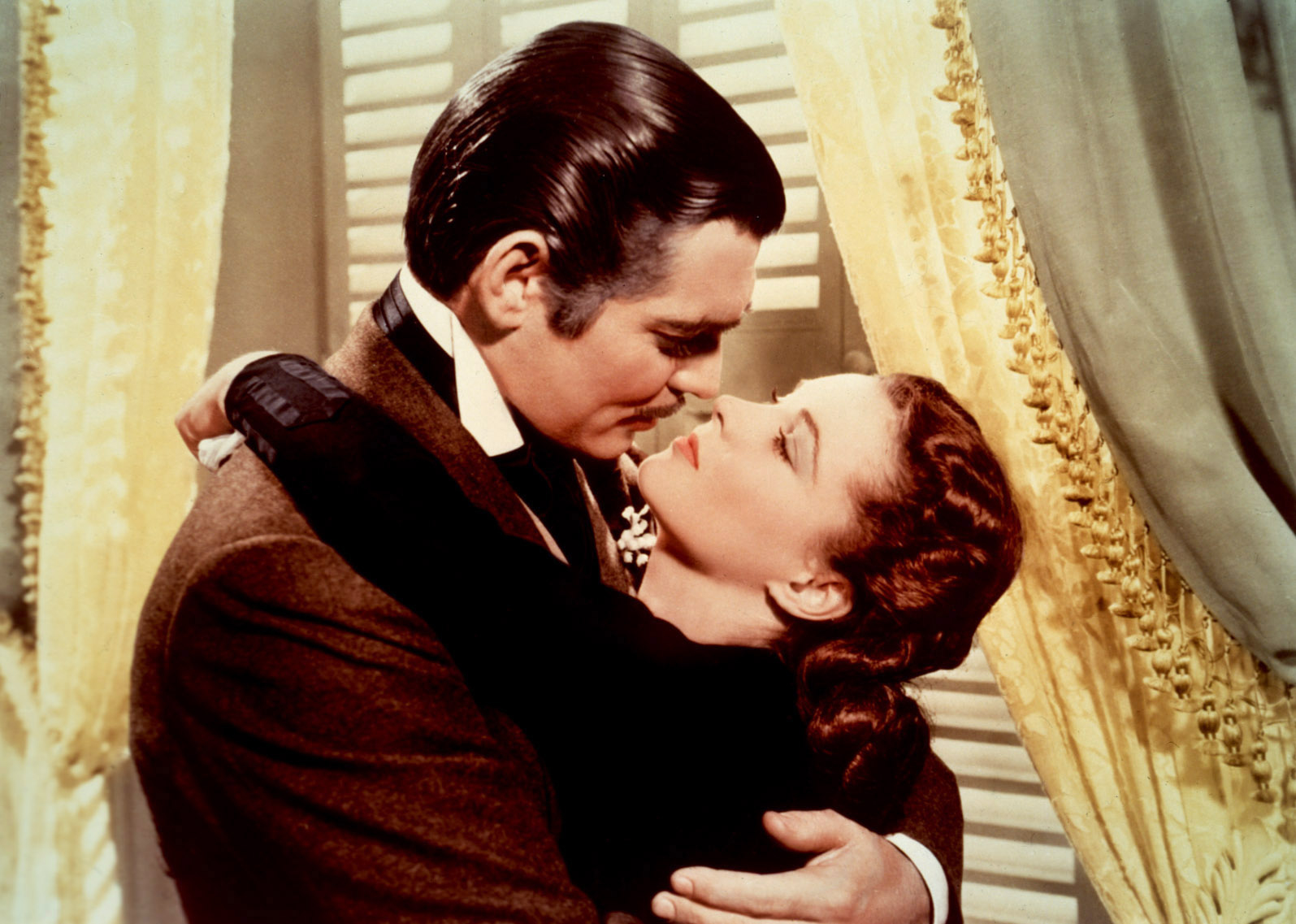
(Victor Fleming, 1937) · A four-hour epic of the Old South, Civil War, and Reconstruction, Gone with the Wind ends with what the American Film Institute calls the most memorable line of all time. Leigh is conniving, enchanting, childish, and beautiful in Technicolor, amidst expansive sets from the most expensive production in Hollywood up to that time. An iconic movie and one of the most-watched of all time, this is a spectacle not to be missed on the big screen.
runtime: 238 min format: 35mm
2015-05-04 @ 7:00 PM
Waterloo Bridge
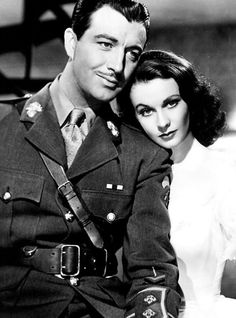
(Mervyn LeRoy, 1940) · Initially agreeing to the leading-lady role of Myra on the knowledge that Olivier would star as the male lead, Leigh instead ended up acting opposite Robert Taylor, who she believed was a poor fit for the role. Despite these issues, the pair created enough chemistry on screen as a down-on-her-luck ballerina and her lover, a soldier who is presumed dead but turns out to be alive, to make this film director Mervyn LeRoy’s favorite among his own work.
runtime: 108 min format: 35mm
2015-05-11 @ 7:00 PM
That Hamilton Woman

(Alexander Korda, 1941) · Leigh’s last film with Olivier is the story of Emma Hamilton, the infamous mistress of British naval hero Lord Horatio Nelson. Made as WWII was ravaging Europe, director and producer Alexander Korda hoped that the film’s pro-British message might help convince the then-neutral United States to join the war. Korda’s propagandizing turned out to be too overt, however, causing him to be investigated by a Senate committee for trying to incite America to war.
runtime: 128 min format: 16mm
2015-05-18 @ 7:00 PM
A Streetcar Named Desire
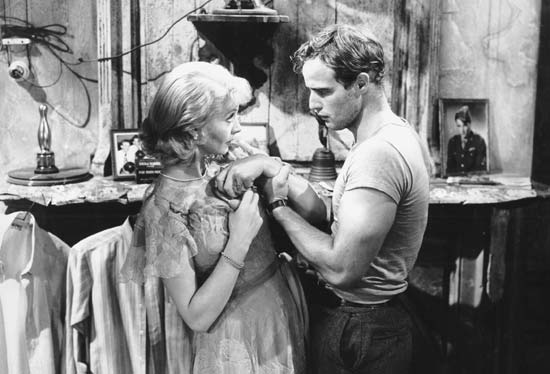
(Elia Kazan, 1951) · Second only to her turn as Scarlett O’Hara, Leigh plays fading and delusional Southern belle Blache DuBois. Last time Leigh played Blanche, she was directed onstage by husband Laurence Olivier. Informed by her own struggles with bipolar disorder, Leigh's rendition of Blanche is superb. Marlon Brando is the brutish Stanley Kowalski—also a reprise of a stage performance—and this portrayal earned Brando the first of four consecutive Best Actor nominations.
runtime: 122 min format: 35mm
2015-06-01 @ 7:00 PM
Ship of Fools
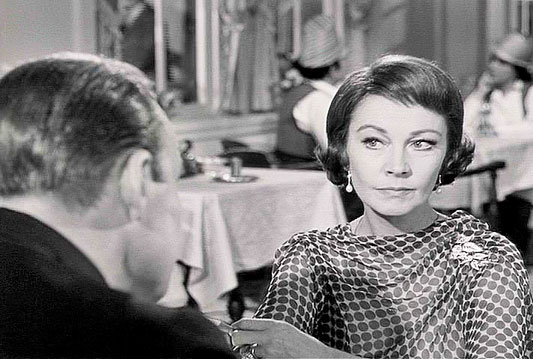
(Stanley Kramer, 1965) · In 1933, an ocean liner travels across the Atlantic to Germany. As Hitler's government comes to power in their destination, prejudices flare up in the ship itself, where the first-class passengers target the less fortunate with bigotry. In her last movie, Leigh leads an international all-star cast, including Jose Ferrer (as a Nazi-sympathizing businessman), Oskar Werner (a dying heart patient), and Simone Signoret (a wealthy woman bound for jail)
runtime: 149 min format: 35mm



